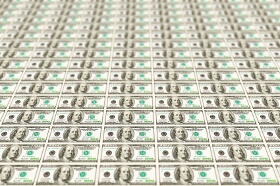The euro extended its decline today amid mounting concerns about the sovereign-debt crisis in Europe and the ability of the eurozone to keep its integrity, caused by uncertainty about the June elections in Greece and signs that the crisis is spreading.
Spain is the second major worry, following Greece, for European investors, especially after its banks and regions lost access to capital markets. The government is continuously reassure that the country does not need a bailout, and the need to repeat that everything is good may be considered troublesome by itself. Even the powerhouse of the European economy, Germany, shows signs of weakness. Losses were limited, though, as polls showed that pro-bailout parties are gaining votes in Greece.
Spain is the second major worry, following Greece, for European investors, especially after its banks and regions lost access to capital markets. The government is continuously reassure that the country does not need a bailout, and the need to repeat that everything is good may be considered troublesome by itself. Even the powerhouse of the European economy, Germany, shows signs of weakness. Losses were limited, though, as polls showed that pro-bailout parties are gaining votes in Greece.













